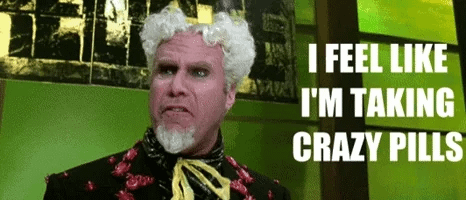Here's How Artificial Intelligence Will Wreck the Economy
27. What happens when productivity explodes but jobs disappear?
I do not understand why no one is talking about this.
I’m flummoxed.
The full scale of this has probably has never crossed your mind. Who knows?
I stumbled upon the different pieces of this puzzle and now I care about it a lot. I’m going to tell you why I’m so passionate about this and then you can decide if it’s something you care about, too, or if I’m one of Professor McGonagall’s babbling, bumbling band of baboons (RIP Maggie Smith).
But first, let me acknowledge that sometimes I tell stories about time spent in the mountains and about guiding people in the backcountry. Other times, I share insights I’ve picked up on my journey in tech. This? This, strangely, is the result of both — a realization brought about by pattern recognition.
The choice between denial, giving up, grasping for control, or responding.
Seth Godin recently published a newsletter about the certainty of change and the 4 ways to navigate it.
Here’s a quick summary, for context:
“DENY: We can pretend that the world isn’t changing, that nothing is different and angrily push back on any evidence to the contrary.
GIVE UP: We can embrace our perceived powerlessness and simply stop trying.
CONTROL: You can hold back the ocean for a little while, but it always finds a way.
RESPOND: Responders see and acknowledge the situation, then use their resources to make an impact. It never works out exactly the way we hope, but it usually works out better than any of the other paths.”
We’re going to weave our way through these together before landing on the “respond” option.
The change I want to talk to you about has to do with AI.
No, NO… WAIT… wait, please, it’s not what you think. Hear me out; I want to talk about the changes we’re facing together because of AI. This is not a post about the utopian society and lavish lives we’ll lead if you just please oh please give it a chance and learn to love AI the almighty.
The piece of the puzzle that has snagged my full attention is the potential for economic devastation like we’ve never ever seen. Worse than the Great Depression. We seem completely unprepared for it, and we’re charging ahead like it doesn’t exist.
Now, before we keep going I need you to know that this is not a doom & gloom post. I’m not here to serve you some hot and ready depression stew. I DO have concerns, but I also see opportunity.
And that, my friend, is what I’d love your feedback on.
Keep reading with a 7-day free trial
Subscribe to Unobstructed to keep reading this post and get 7 days of free access to the full post archives.





